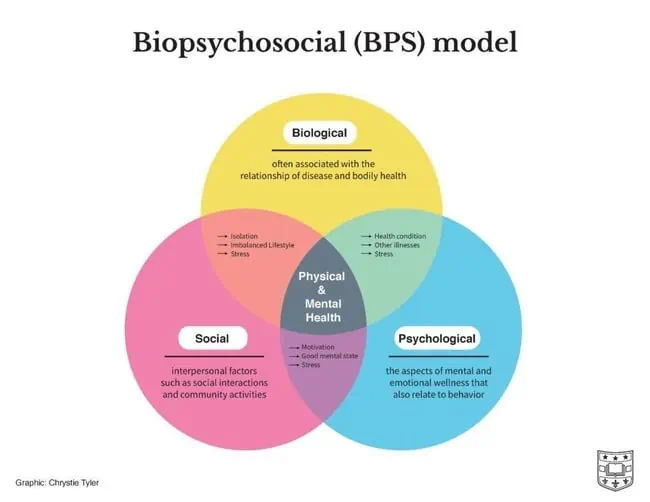
Ever since the COVID-19 pandemic hit the globe, the need for mental health nurses saw a new high. It happened due to a rise in the epidemic of clinician mental health issues. Even 75% of the nurses worldwide started to feel burnout, depression, and compassion fatigue. A mental health nursing dissertation explores the threats to the physical and mental health of both the patient and health care providers.
Most student nurses describe psychiatric nursing as a difficult experience that provides an opportunity for professional and personal growth. Working with clients who have clinical symptoms of mental health illnesses is by all means tough and drains the nurses a lot.
In addition to clinical practice, nurses have to write and submit dissertations on diverse research topics. This way, they can reflect on their experiences as a nurse and contribute to their role in the research field. The field is expected to expand at a CAGR of 9.06% by 2026, as a Media News Wire report mentions, and so shall the complexity of research trends in the field.
In your mental health nursing dissertation, you will have to provide a thorough analysis of the competitive academic landscape and highlight the challenges that mental health professionals face during their work journey.
Let’s define the subject first and discuss the tips to ace your dissertation writing on mental health nursing.
What is Mental Health Nursing?
As defined by the NEWS Medical and Life Sciences, mental health nursing, also termed psychiatric nursing, is a form of nursing practice which is concerned with taking care of patients with mental health problems. Such nurse professionals work alongside a medical team of healthcare professionals that aim to improve the patient’s quality of life.
Per the report of Statista, the number of mental health nurses in England who worked for the NHS was a whopping 38.9 thousand. The number is increasing even now, so you have to work quite hard if you want to establish yourself as a successful practising nurse in the field.
How Do You Write a Mental Health Nursing Dissertation?
Writing a mental health nursing dissertation involves a systematic and well-organised approach. Students often feel the need for online dissertation help, mostly with their research methodology and data collection part. Further, a dissertation on mental health nursing must also have a definite structure and well-written chapters that show how mental health nurses work.
Here are 10 steps to guide you through the process:
1. Select a Relevant Topic
Begin by choosing a topic that aligns with your interests and the current trends in mental health nursing. Consider issues like emerging therapies, healthcare policies, or the impact of technology on mental health interventions. A good topic attracts the attention of the relevant research community and increases the worth of your work.
2. Define Your Research Questions or Hypotheses
Clearly articulate the main questions or hypotheses your dissertation aims to address. Specify the research questions right at the start and build the foundation for getting answers to such questions. These questions should guide your research and provide a clear focus for your study.
3. Conduct a Thorough Literature Review
Review existing literature related to your topic. What’s more? Make sure that you have added the appropriate amount of content to your work and that the mental health nursing dissertation structure is specific. First, understand the existing state of knowledge in the field, identify and address the gaps, and then create a theoretical framework for your study.
4. Develop a Strong Research Proposal
Moving to the next step, you will have to craft a detailed research proposal that outlines your dissertation’s objectives, methodology, and expected outcomes. Take it as a gist of your dissertation and tell readers why your work is important. Clearly specify your
- Research design
- Data collection methods
- Sampling strategy
- Analysis techniques
5. Obtain Ethical Approval
Before you start working on data collection, you must seek ethical approval from the relevant ethics committee or Institutional Review Board (IRB). Ensure that your research is in compliance with ethical standards and protect the rights and well-being of participants. Also, be considerate that you are behaving responsibly towards the patients who need critical care with their mental illness.
6. Collect and Analyse Data
Now is the high time to execute your research plan and collect relevant data using appropriate methods. Needless to say, it shall involve surveys, interviews, observations, or a combination of these. Once you finish collecting it, analyse the data using suitable statistical or qualitative techniques.
7. Interpret Findings
In this step, work on presenting and interpreting your research results in a clear and coherent manner. Help your readers see the value of your work in the light of current-day scenarios. Furthermore, discuss how your results contribute to the existing body of knowledge and whether they support or challenge current theories.
8. Discuss Implications and Recommendations
In the discussions chapter of your dissertation, reflect on the practical implications of your findings for mental health nursing practice. Offer recommendations for future research and discuss how your study contributes to enhancing mental health care. Also, relate your work with the evidence-based practice of nurses in the UK.
9. Write a Well-Structured Dissertation
Organise your dissertation into standard sections, i.e., introduction, literature review, methodology, results, discussion, and conclusion. Double-check to see that there is a logical flow and use appropriate academic language throughout your papers. Do not hesitate to ask for help with the mental health nursing dissertation from your peers whenever you need it.
10. Proofread and Edit
Once you are finished writing your papers, put them away for a while and relax. After that, come back to your work to proofread it and eliminate grammatical errors. Not only this, but work on improving clarity and ensuring adherence to formatting guidelines. Consider seeking feedback from peers, mentors, or advisors to refine your work.
Remember, each step is interconnected, and flexibility in your dissertation is important. If your research takes unexpected turns, be prepared to adjust your plan accordingly. Keep a clear focus on your research questions and maintain a balanced and logical presentation of your mental health nursing dissertation.
What Are the Components of Mental Health in Nursing?
In mental health nursing, the holistic care approach tells us that myriad interconnected factors influence mental health. The components of mental health in nursing, as specified by the Washington University School of Medicine in St. Louis, encompass biological, psychological, and social dimensions.
-
Biological Components
Biological factors are associated with the physiological aspects of mental health. They are usually concerned with the genetics, neurochemistry, and overall physical health. Nurses monitor patients for any genetic predispositions to mental health conditions. They also evaluate the impact of medications on their mental well-being.
-
Psychological Components
Psychological components delve into the cognitive and emotional aspects of mental health. Mental health nurses engage in the following:
- Therapeutic communication
- Cognitive-behavioural interventions
- Psychoeducation
It is done to understand and address patients’ thoughts, emotions, and behaviours. It also includes assessing coping mechanisms, self-esteem, and resilience.
-
Social Components
Social factors address the influence of interpersonal relationships, family dynamics, and societal factors on mental health. Mental health nurses work collaboratively with patients’ support systems, addressing family dynamics, social isolation, and community resources to foster a supportive environment for recovery.
By comprehensively addressing these biological, psychological, and social components, mental health nurses strive to promote a holistic and patient-centred approach to care, ultimately supporting individuals on their journey to mental wellness.
Mental Health Nursing Dissertation Topics in 2024
Some examples of topics for mental health nursing dissertations are as follows:
- Exploring the Impact of Virtual Reality Interventions on Anxiety and Depression in Psychiatric Patients
- Examining the Role of Telehealth in Providing Mental Health Support to Underserved Populations
- The Influence of Social Media on Adolescents’ Mental Health
- Assessing the Efficacy of Mindfulness-Based Interventions in Reducing Burnout among Mental Health Nurses
- Investigating the Relationship Between Sleep Quality and Mental Health Outcomes in Patients with Schizophrenia and Bipolar Disorders
Conclusion
Following these steps will help you navigate the process of writing a mental health nursing dissertation with confidence and rigour. Reflect on your relationships with patients and stay authentic about your work. The final submission must also be completely flawless and plagiarism-free.
We hope that these guidelines were enough for you to craft a brilliant dissertation. Some of the students also require tailored help with their work. They prefer to hire dissertation writing services in the UK, which provide one-on-one academic help to students. Doing so helps them earn their mental health nurse degree with ease.








